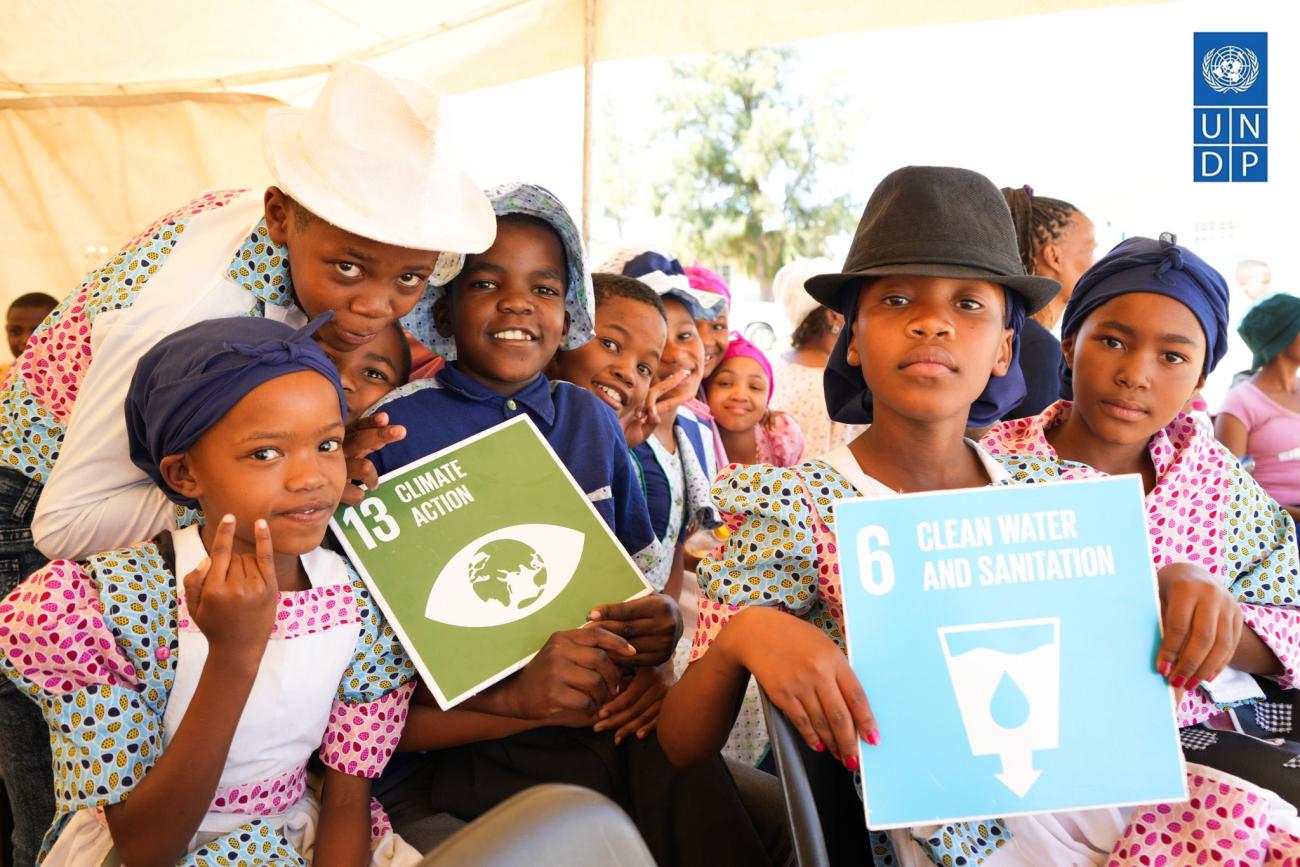Urgent Action Needed to protect Wetlands in the face of Climate Change

Namibia Commemorates World Wetlands Day & World Water Day 2023
WETLANDS are among the most valuable ecosystems on earth, providing a range of benefits such as flood protection, water purification, carbon sequestration, and biodiversity conservation.
However, they are under threat from climate change, which is causing rising sea levels, increased storm frequency and intensity, and changes in precipitation patterns. These changes are affecting wetlands globally, with many species at risk of extinction, and the loss of wetlands can have severe consequences for human populations.
Wetlands include dams, lakes, rivers, Oshana’s, flood plains, as well as shallow seashores and are recognised as one of the world's most productive ecosystems as they store water to ensure supply during dry periods, prevent floods, recharge ground water, help to control erosion, provide fish, provide fertile soil for crops and grazing for animals. Urgent action is needed to protect and restore these vital ecosystems and ensure their resilience in the face of climate change.
Minister of agriculture, water and land reform, Calle Schlettwein said the demand for water in the world and in Namibia has been increasing and will continue to do so over the coming decades due to population growth, socio-economic development, and demand for food production.
Schlettwein was speaking during World Wetlands Day and World Water Day which were commemorated in Windhoek recently.
"It is observed that climate change is causing rising temperatures and increased rainfall variability on our continent of Africa. In many areas, surface water resources, which are particularly vulnerable to the effects of climate change and pollution, are declining and becoming increasingly unpredictable," the minister said.
Schlettwein said mismatching water demand with available water resources will risk depleting resources and not meeting many sustainable development goals which are aimed at alleviating poverty, improving public health, improving education, protecting of the environment, and ensuring sanitation for all.
"Our communities need Suppliers of safe drinking water for domestic and economic activities. Our aim is to create awareness that we need to increase our efforts and interventions to accelerate change so that our communities which are less privileged have access to improved sanitation and water services," he said.
Schlettwein said some areas, like Groot - Aub south of Windhoek, have water problems as the water demand has exceeded the water supply from local water sources (groundwater) to such an extent that boreholes are unable to produce sufficient water.
The available water sources are increasingly under pressure from pollution associated with human activities. Studies undertaken show that water around Groot - Aub contains substances such as nitrate often associated with animal manure.
Schlettwein said as such there was a need to ensure that the already limited available water is kept free of contamination by designing areas that are suitable for animal keeping and managing waste including wastewater to ensure that effluents and other possible pollutants are not washed into the groundwater. The minister said young water professionals need to develop interests in research, particularly in water-related fields to help determine the resources potential and aid sustainable development. He said there was a need for an improved knowledge base, institutional Na capacity and enhanced governance to unlock sustainable development of groundwater art resources for socio-economic development, water and food security and climate change resilience.
"The world's water problems can be a catalyst for cooperation, and fierce national N competition over water resources has prompted m fears that water issues contain the seeds of conflict. Water should be a commodity of unity does not conflict and we believe that shared water sources can be managed in harmony," Schlettwein said.
The United Nations Development Programme (UNDP) Resident Representative to Namibia, Ms Alka Bhatia, said the fifth National Development Plan (NDPS) goal of environmental sustainability sets out to "ensure a sustainable environment and enhance resilience" and to contribute to this broad aspiration, the United Nations focuses on the outcome.
"Vulnerable populations in disaster-prone areas and biodiversity-sensitive areas are resilient to shocks and climate change effects and benefit from natural resources management. To achieve this outcome, United Nations agencies are supporting the government of Namibia in sustainable natural resource 1 management, particularly in groundwater and wetlands," she said.
Ms Bhatia said with the effects of climate change, such as droughts and floods, the need to manage water resources sustainably becomes even more critical. UNDP is supporting the development of a project for Enhanced Water Security and Community Resilience in the Adjacent Cuvelai and Kunene Transboundary River Basins, also known as "CUVKUN". The project will strengthen the joint management and planning capacity of the trans. boundary Cuvelai river basin and Kunene River basin between Namibia and Angola. UNDP, through different small community initiatives, implements small projects to achieve integrated, climate-resilient, sustainable, and equitable management of water at the local level, said Bhatia.
The UNDP resident representative said government and civil society should renew their commitment to conserving and managing water resources sustainably, and work towards a future where everyone has access to safe and clean water.
"We should equally renew our commitment to protecting and restoring these critical ecosystems and promote sustainable land use practices, reduce pollution and mitigate the impacts of climate change to safeguard our wetlands for future generations," she said.
Footnote:
This story was contributed by Ms Sophie Tendane, a Journalist at The Namibian newspaper



